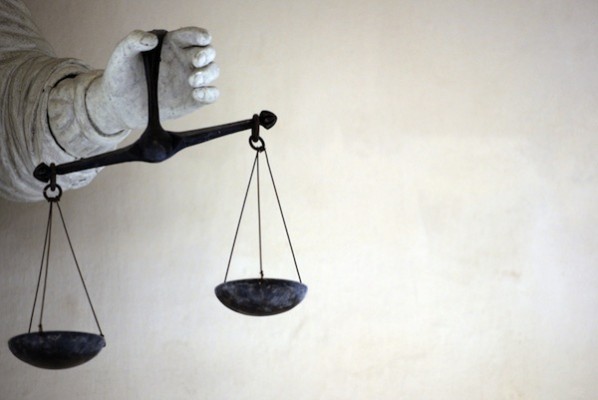Imagine this. Barclay’s Bank is banned from operating in Iran for ‘security’ reasons. The bank challenges the government’s decision in the Iranian courts, and the case reaches the Supreme Court. Half way through the hearing, the lead judge announces that the bank’s lawyers must leave the courtroom so that it can consider what the government says is crucial evidence. The government lawyers, however, get to stay and argue their case in the secret hearing.
Unfair? Clearly. Surprising? Not so much. Iran is hardly a bastion of the rule of law. But what if I told you that this exact scenario, involving an Iranian bank and the British Government, happened last week in our own Supreme Court in Westminster?
On Thursday, for the first time in its history the Supreme Court held a secret hearing during which only the Government lawyers, who were one side of the case, could stay in the court room, whilst Bank Mellat, who were suing the Treasury in precisely the scenario described above, were forced to leave.
Lord Neuberger, the Court’s president, made clear in his published statement that all nine judges reached their decision ‘with great reluctance’. Curiously, an earlier version of his statement sent out by the court’s press office included an extra final paragraph, in which Lord Neuberger (who has had issues with missing paragraphs before) warned that the judges would ‘have quite a few things to say about this unhappy procedure’ later on.
Unhappy indeed. Lord Neuberger has in the past strongly rejected attempts to expand ‘Closed Material Procedures’ — that is secret hearings which are currently restricted to immigration, deportation, terrorism and financial restrictions cases — to civil trials. He said ‘a litigant’s right to know the case against him and to know the reasons why he has lost or won is fundamental to the notion of a fair trial’. Which sounds almost too obvious. That right, he said, is an ‘irreducible minimum requirement of an ordinary civil trial’.
It may be that Lord Neuberger’s ‘unhappy’ statement disappeared for political reasons (just a guess). That is because the Government is now in the final stages of making that irreducible minimum of fairness, well, reducible.
Thanks to the Justice & Security Bill, secret hearings are coming soon to a civil trial near you. The Government will be able to press the national security switch and — according to the current plan — judges will be forced to boot out litigants whilst the Government gets to argue its own case unchallenged. The Special Advocates, a group of security cleared lawyers who act in secret hearings, are fundamentally opposed to the Bill, despite the fact that it would lead to more work for them.
The next vote on the Bill is tomorrow, when it will enter ‘ping pong’ mode in the House of Lords. All indications are that the right to attend your own trial is about to be seriously curtailed. And not in Iran, but right here, right now.
Adam Wagner is a barrister at 1 Crown Office Row practising in human rights and medical law. He is the founding editor of the UK Human Rights Blog and is on Twitter as @adamwagner1.






Comments